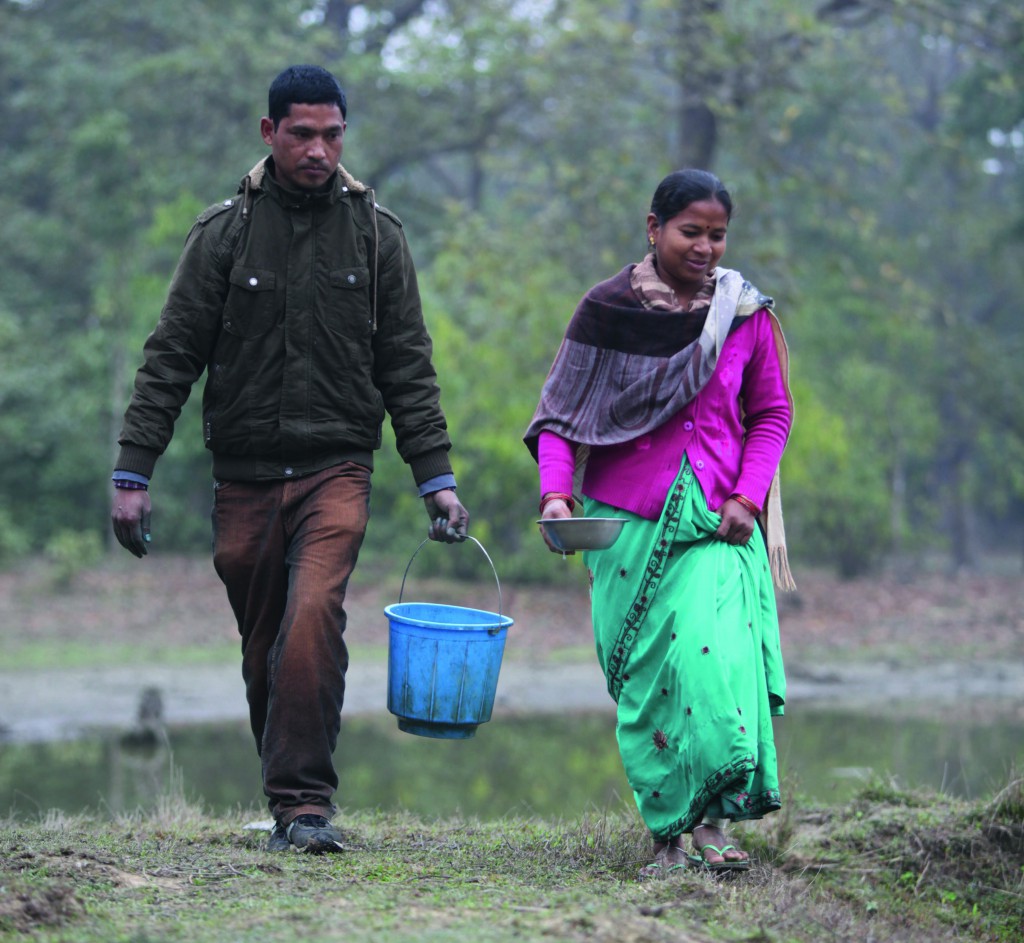
Each year, Project Compassion, which runs through the six weeks of Lent, brings hundreds of thousands of Australians together in solidarity with the world’s poor.
This year, the Archdiocese of Perth’s e-Record is publishing the stories of the works of Caritas Australia during the six weeks of Lent to emphasise how the international aid and development organisation is working with partners around the world to empower vulnerable people to establish sustainable food sources and develop income streams for life.
With practical training and support, the men and women of the Kolkatla Fish Raising Group in rural Nepal have been able to share their skills and create a life-long source of food and income, where once there was nothing.
Do you know the proverb: “Give a man a fish and you feed him for a day. Teach a man to fish and you feed him for a lifetime?”
For most of us it’s simply a saying, but Caritas Nepal, supported by Caritas Australia, has taken these words to a new level, working with men and women in a remote village community to turn a disused pond into a thriving fish-raising business so that together they can share food for life.
While rich in natural beauty, life in rural Nepal is difficult. Many people are very poor, and survive by farming small plots of land which grow just enough food for their families. Unemployment is high, and very few people have the skills to develop new businesses.
Mother of three, Sarita (34), attended school until the eighth grade, making her one of the most educated women in her village. Yet her family still struggled to survive.
Their small family farm simply couldn’t sustain them.
“With the produce from the land we did not meet our food and basic needs,” Sarita explains.
So when Caritas Nepal initiated the Kolkatla Fish Raising Group in her community eight years ago, Sarita was one of the first people to join.
This collaborative program, that works for the common good of the wider community, provided the Fish Raising Group of eight men and four women with a low-interest loan, along with all the training and equipment they needed to establish and run a successful business raising and selling fish.
“This program embraced the poorest of the poor like us, gave us skills and supported us with funds to invest and make something of ourselves,” says Sarita.
The group leased a natural pond on the northern side of their village, and with a huge amount of hard work and dedication, their business has grown to become one of the most successful enterprises supported by Caritas Nepal.
These days the group produce around 8,000kg of fish each year, including common carp, silver carp and big head. “There is high demand for fish in our locality and also in nearby markets,” says Sarita. “We are able to sell at a good price.”
With a steady income from the Fish Raising Group, Sarita’s family has bought more land, invested in livestock and planted fruit trees along with their regular crops. All together, this means they have long-term earning power, a secure source of food for life and a healthy diet that (naturally) includes a lot of fish!
Sarita is proud that she can share food for life and can now afford to educate her children, so that they will be able to create their own futures.
“The program has provided our family with good health and hope,” says Sarita.
“And it has become a platform for the unity and growth of the community.”